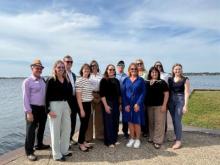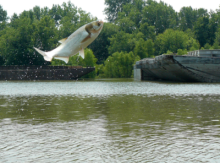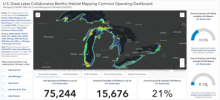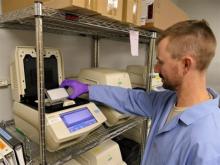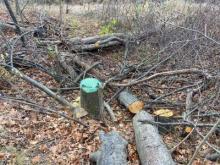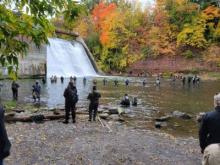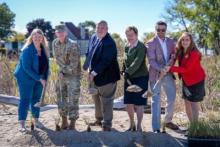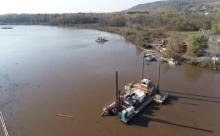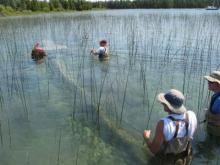Utilizing funding from GLRI, the National Park Service Rivers, Trails, and Conservation Assistance Program (RTCA) has supported the City of Duluth, Minnesota, to improve and expand park and trail spaces near historically disadvantaged neighborhoods located along the St. Louis River Estuary. The initial revitalization efforts to improve Waabizheshikana: The Marten Trail will enhance residents’ opportunities to connect back to a cultural and ecologically significant area of the waterfront. Partners are working together to preserve and enhance this trail while promoting awareness of the interconnectedness between Indigenous heritage and environmental stewardship.
Utilizing funding from GLRI, the National Park Service Rivers, Trails, and Conservation Assistance Program (RTCA) has supported the City of Duluth, Minnesota, to improve and expand park and trail spaces near historically disadvantaged neighborhoods located along the St. Louis River Estuary. The initial revitalization efforts to improve Waabizheshikana: The Marten Trail will enhance residents’ opportunities to connect back to a cultural and ecologically significant area of the waterfront. Partners are working together to preserve and enhance this trail while promoting awareness of the interconnectedness between Indigenous heritage and environmental stewardship.


